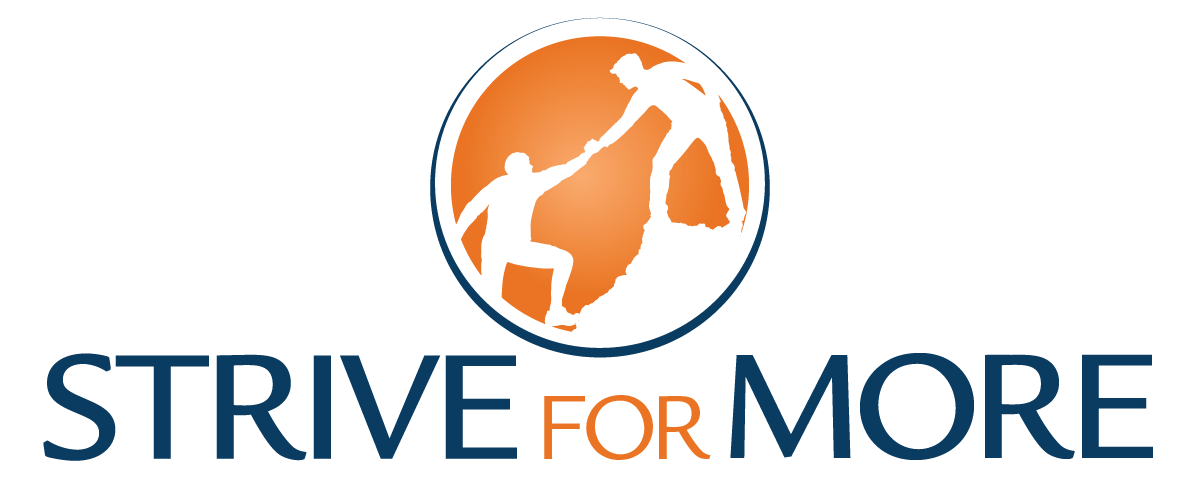Coaching Works!
Coaching increases effective communication, develops leadership, fosters cohesive relationships and teamwork, increases well-being, creates healthy organizational cultures, and much much more! But don’t just take our word for it!
1In 2001, MetrixGlobal, LLC studied the impact of coaching rendered to 43 leadership development participants at a Fortune 500 company. They found participants benefited from coaching regarding their:
- Personal and work group productivity;
- Satisfaction and the satisfaction of their employees and customers; and
- Work output and quality.
The study also found the return on investment (ROI) of coaching to be 5.29 times the cost of coaching, which increased to 7.88 times the cost of coaching when additional factors, such as, the savings from retaining employees, were included.
2In 2001, Joy McGovern, Ph.D., Michael Lindemann, Ph.D., Monica Vergara, M.A., Stacey Murphy, Linda Barker, M.A., and Rodney Warrenfeltz, Ph.D. studied the impact of coaching rendered to 100 executives across the northeast and mid-Atlantic. They found the executives and their organizations benefited from coaching through a reduction in conflict and an increase in:
- Customer service;
- Improved relationships with direct reports, peers, and stakeholders;
- Improved teamwork;
- Increased job satisfaction
- Organizational strength;
- Productivity;
- Quality.
The study also found the average ROI of coaching to be 5.7 times the cost of coaching.
3Between 2002 and 2009, *Anthony M. Grant conducted six randomized control studies assessing the effects of cognitive behavioral coaching (CBC), mindfulness training, and solution-focused cognitive behavioral coaching (SF-CBC). The participants of the studies and type of coaching rendered were: in 2002, 62 individuals training to be accountants and CBC in a group setting; in 2006, 56 adults and SF-CBC; in 2007, 56 female high school students and SF-CBC (hereon referred to as 2007-1); in 2007, 63 adults and SF-CBC (heron referred to 2007-2); in 2008, 45 adults and SF-CBC with mindfulness training; and in 2009, 41 executives and SF-CBC. Cumulatively, the studies found participants who received coaching showed an increase in the following attributes over participants who did not receive coaching:
- Cognitive hardiness (2007-1);
- Dealing with organizational changes (2009);
- Environmental mastery (2007-2);
- Goal attainment (2006, 2007-2, 2008, and 2009);
- Goal commitment (2007-2)
- Grade point average (2002);
- Hope (2006 and 2007-1);
- Mental health (2002, 2007-1, and **2009)
- Resilience (2009);
- Self-regulation (2002);
- Study skills (2002);
- Well-being (2006);
- Workplace well-being (2009).
*The 2006 study was also conducted by L. Green and L. Oades. The 2007-1 study was also conducted by S. Green and J. Rynsaardt. The 2007-2 study was also conducted by G. B. Spence. The 2008 study was also conducted by G. B. Spence and M. J. Cavanagh. The 2009 study was also conducted by L. Curtayne and G. Burton.
**The 2009 study showed a reduction in depression and stress.
4In 2011, Matt Symonds cited the ROI of executive coaching to be 7 times the cost of coaching from a global survey conducted by PricewaterhouseCoopers and the Association Resource Center in an online article for Forbes Magazine. Symonds also quoted Inspiring Workplace CEO Marc Roudebush as saying, in regards to the reason for a high ROI for executive coaching:
“When they are able to walk their talk, people listen and are likely to follow suit, improving the levels of enthusiasm, trust, and team effectiveness throughout a team or organization.”
5In 2013, The International Coaching Federation (ICF) and PricewaterhouseCoopers LLP conducted interviews of 24 professionals from across the globe who primarily worked in human resources, learning and development, and organizational development. The professionals stated coaching positively impacted:
- Employee engagement;
- Leadership development
- Leader performance;
- Retention of employees;
- Team work.
6In 2017, the ICF and PricewaterhouseCoopers LLP surveyed over 7,000 coaching clients who assessed the benefits they received from coaching. The study found clients benefited from coaching regarding their, but not limited to:
- Business management strategies;
- Career opportunities;
- Communication skills;
- Individual performance
- Productivity;
- Self-esteem/self-confidence;
- Team performance;
- Wellness;
- Work/life balance.
The benefits of coaching have been well documented and consistent over time. Coaching will help you get to where you want to go and the benefits of coaching are measurable! The benefits you receive from coaching can be measured by, but not limited to: 360-degree assessments, performance reviews, well-being, engagement, impact on business, and ROI. Whatever your goal is, there is a way to get there, and there is a way to measure its worth and success!
References
1Anderson, M. C. Ph.D. (2001). Executive Briefing: Case Study on the Return on Investment of Executive Coaching.
2McGovern, J. Ph.D., Lindemann, M. Ph.D., Vergara, M. M.A., Murphy, S., Barker, L. M.A., and Warrenfeltz, R. Ph.D. (2001). Maximizing the Impact of Executive Coaching: Behavioral Change, Organizational Outcomes, and Return on Investment. The Manchester Review, 6(1), 3-11.
3Grant, A. M., and Cavanaugh, M. J. (2011). Coaching and Positive Psychology. Designing Positive Psychology: Taking Stock and Moving Forward. Oxford University Press: Oxford. 293-309.
4Symonds, M. (2011). Executive Coaching – another set of clothes for the Emperor? Forbes Magazine. https://www.forbes.com/sites/mattsymonds/2011/01/21/executive-coaching-another-set-of-clothes-for-the-emperor/#5f237941118b. April 16, 2019.
5The International Coaching Federation, and PricewaterhouseCoopers LLP (2013). Executive Summary: 2013 ICF Global Organizational Coaching Study.
6The International Coaching Federation, and PricewaterhouseCoopers LLP (2017). 2017 ICF Global Consumer Awareness Study Executive Summary.
